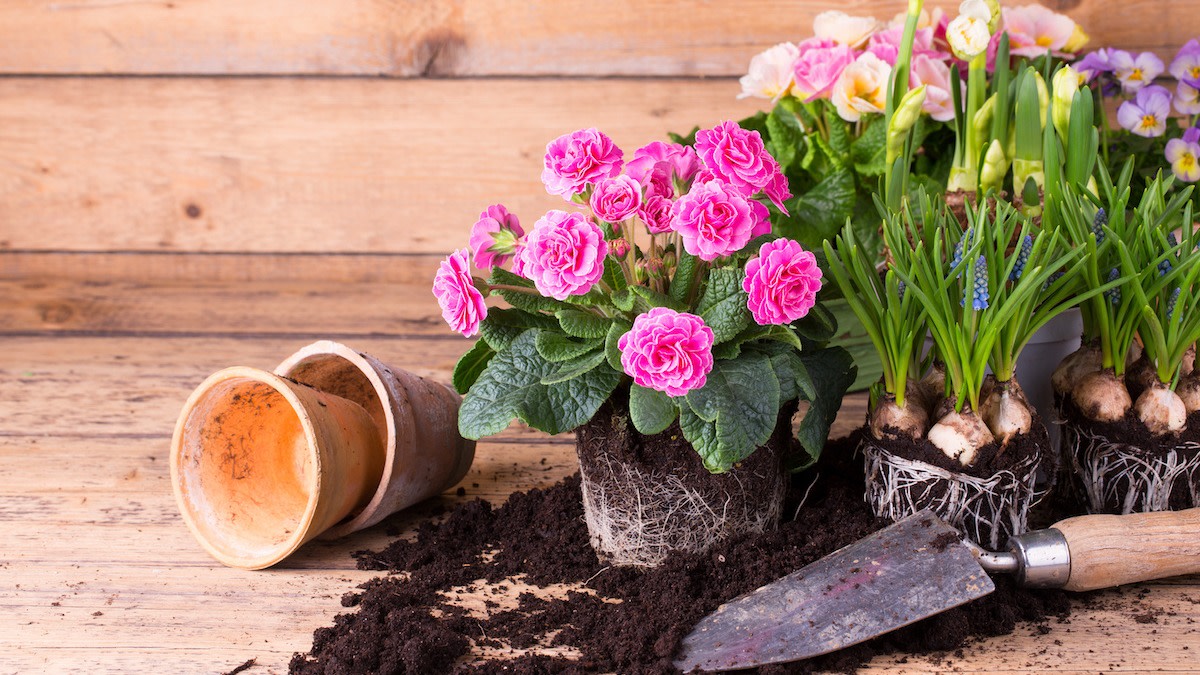Annuals, Perennials, and Biennials: How Are They Different?
Written by MasterClass
Last updated: Jun 7, 2021 • 3 min read
Temperature is the ultimate arbiter of plant life. The gardening season begins in early spring as frosty nights dissipate and plants sense that it is safe to send out tender new shoots. In early summer when full sun is plentiful, there’s an eruption of growth—of flowering and fruiting. But when fall and winter arrive and temperatures go below freezing, plants cease to grow. Annual plants shrivel up and die in the winter, perennials pull all of their energy and resources inward and prepare for the dormant season, and biennials go dormant just once before completing their life cycle.
Learn From the Best
What Are Annuals?
Annuals are plants that complete their entire life cycle in one growing season. Annual crops germinate, grow, produce seeds, and die within the course of a year. If you want to grow them again, you’ll need to replant new plants in your garden the following year.
3 Types of Annual Plants
Annuals fall into three main categories: tender annuals (or summer annuals), hardy annuals (or winter annuals), and half-hardy annuals. These terms describe a plant’s ability to withstand frost and colder temperatures.
- 1. Tender annuals are warm-weather crops that have little-to-no tolerance for freezing temperatures. Examples of tender annuals include basil, cilantro, angelonias, begonias, and marigolds.
- 2. Hardy annuals have the most tolerance to cold weather and frost. Examples of hardy annuals include broccoli, cabbage, radishes, spinach, peas, and annual flowers like larkspur.
- 3. Half-hardy annuals have some ability to withstand freezing temperatures but aren’t as tolerant as hardy annuals. Examples include cauliflower, lettuce, baby’s breath, cosmos, and zinnias.
Not all plants grown as annuals are true annuals. You can grow many vegetables and flowers—like black-eyed Susans, geraniums, tulips, nasturtiums, and impatiens—as annuals, even though they are technically tender perennials. Typically, if a plant is a perennial but it’s too delicate to handle winter temperatures, you can grow it as an annual.
What Are Perennials?
Unlike annual plants, which die after the first year, perennial plants come back year after year. Perennials do not need to be replanted after the growing season ends and will continue to grow for a longer period of time. Many herbs and flowers are perennials.
3 Types of Perennial Plants
Perennials fall into three categories: tender, hardy, and half-hardy.
- 1. Tender perennials may need to be brought inside when the weather is freezing, but they grow year-round in warm climates. Tender perennials include sweet potatoes, yams, eggplant, tomatoes, coneflowers, geraniums, calla lilies, angelonias, petunias, snapdragons, and dahlias,
- 2. Hardy perennials can handle cold and frost. Asparagus, fennel, potatoes, rhubarb, sage, and perennial flowers like hydrangeas are hardy perennials.
- 3. Half-hardy perennials can withstand freezing temperatures up to a point, but they don’t do well in sustained cold. Half-hardy annuals include daylily, hosta, and mint.
Perennials come in summer and winter varieties. The ideal planting time for perennials varies by hardiness zone, but you should plant winter perennials in early autumn (September to October), and summer perennials in the early spring (March to April). This gives the seedlings time to establish their root systems before the weather gets too warm or too cold.
What Are Biennials?
Biennials are plants that complete their full life cycle in two years. Biennials germinate during the autumn or spring months and produce roots, a stem, and leaves in their first year before going dormant. The following year, they produce flowers, fruit, and seeds. True biennial plants include flowering plants like foxgloves and hollyhocks and vegetables like dill, kale, carrots, celery, Swiss chard. Like annuals and perennials, biennials can be hardy, half-hardy, or tender.
Learn More
Grow your own food with Ron Finley, the self-described "Gangster Gardener." Get the MasterClass Annual Membership and learn how to cultivate fresh herbs and vegetables, keep your house plants alive, and use compost to make your community - and the world - a better place.
